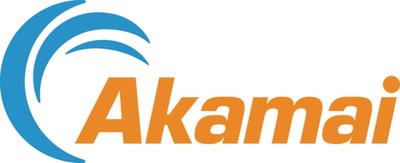Akamai Finds Geopolitical Tensions Driving Surge in DDoS Attacks on Financial Institutions
Rhea-AI Summary
Akamai Technologies' latest State of the Internet (SOTI) report reveals that financial services remains the most targeted industry for DDoS attacks, accounting for 34% of such incidents. The surge in attacks is attributed to geopolitical tensions and increased hacktivist activities. Key findings include:
1. Financial services is most impacted by brand impersonation (36%) and phishing (68% of counterfeit domains).
2. Sharp increases in Layer 7 DDoS attacks targeting APIs, particularly undocumented shadow APIs.
3. DDoS event frequency doesn't always correlate with attack intensity.
4. Well-known threat actors like REvil, BlackCat, and Anonymous Sudan are involved in these attacks.
The report aims to help financial services cybersecurity professionals understand the complex threat landscape and implement best practices to protect customers.
Positive
- Akamai's expertise in identifying and analyzing cybersecurity threats
- Comprehensive report providing valuable insights for financial services cybersecurity professionals
- Identification of specific threat actors and attack patterns, enabling better defensive strategies
Negative
- Increased cybersecurity risks for Akamai's financial services clients
- Potential for reputational damage if Akamai's protective measures are perceived as inadequate
- Rising complexity of cyber threats may require increased investment in security solutions
News Market Reaction
On the day this news was published, AKAM declined 1.43%, reflecting a mild negative market reaction.
Data tracked by StockTitan Argus on the day of publication.
Financial services is also most at risk for phishing and brand impersonation
Layer 3 and Layer 4 DDoS attacks target network and transport layers, overwhelming network infrastructure and exhausting server resources and bandwidth. The report reveals that the increased DDoS events stem from ongoing geopolitical tensions, which have fueled a surge in hacktivist activities. This includes one of the largest cyberattacks Akamai has ever observed against a major financial services company in
Navigating the Rising Tide: Attack Trends in Financial Services also details the involvement of well-known threat actors such as REvil, BlackCat (ALPHV), Anonymous Sudan, KillNet, and NoName057 — all notable for their activities related to the
Other main findings of the report include:
- Financial services is the sector most impacted by brand impersonation and abuse (
36% ). This is far ahead of the second most targeted vertical — commerce (26% ). - Phishing dominates the counterfeit domains that are targeting financial services, accounting for
68% of all recorded instances. Brand impersonation follows in second place, representing24% of all recorded domains. - Akamai observed sharp increases in the number of Layer 7 DDoS attacks that specifically target APIs. Of particular concern are undocumented shadow APIs, which are often unprotected because information security teams are unaware of their existence. Attackers can exploit these APIs to exfiltrate data, bypass authentication controls, or perform disruptive acts.
- DDoS event frequency doesn't always correlate with attack intensity. Although some months show few attacks, the corresponding data indicates significant traffic spikes, emphasizing the need to consider both attack frequency and volume when assessing DDoS attacks.
"Cybercrime poses a significant threat to the financial services sector as it tries to cause widespread disruption and serious economic damage," said Steve Winterfeld, Advisory CISO at Akamai. "This report is designed specifically to help financial services cybersecurity professionals around the globe understand the increasingly complex threat landscape and best practices to protect customers."
Navigating the Rising Tide: Attack Trends in Financial Services also features a guest column from the Global Head of Intelligence at FS-ISAC; a case study on credential stuffing attacks; a security spotlight on DDoS attack intensity; regional data; sections on Zero Trust and microsegmentation; and mitigation strategies for defending against DDoS attacks, phishing, brand abuse, and ransomware.
This year marks the 10th anniversary of Akamai's SOTI reports. The SOTI series provides expert insights on the cybersecurity and web performance landscapes, based on data gathered
About Akamai Security
Akamai Security protects the applications that drive your business at every point of interaction, without compromising performance or customer experience. By leveraging the scale of our global platform and its visibility to threats, we partner with you to prevent, detect, and mitigate threats, so you can build brand trust and deliver on your vision. Learn more about Akamai's cloud computing, security, and content delivery solutions at akamai.com and akamai.com/blog, or follow Akamai Technologies on X, formerly known as Twitter, and LinkedIn.
Contact
Jim Lubinskas
Akamai Media Relations
703.907.9103
jlubinsk@akamai.com
![]() View original content to download multimedia:https://www.prnewswire.com/news-releases/akamai-finds-geopolitical-tensions-driving-surge-in-ddos-attacks-on-financial-institutions-302249882.html
View original content to download multimedia:https://www.prnewswire.com/news-releases/akamai-finds-geopolitical-tensions-driving-surge-in-ddos-attacks-on-financial-institutions-302249882.html
SOURCE Akamai Technologies, Inc.







